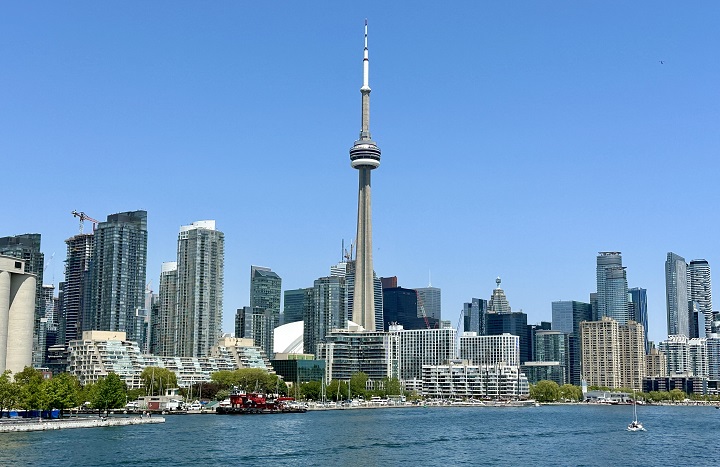Muslim women facing increased instances of Islamophobia in shelter spaces

Posted December 17, 2023 11:53 am.
Last Updated December 17, 2023 11:55 am.
The war in the Middle East has seen a rise in instances of Islamophobia, even in locations designed to be safe spaces. Shelters are now reporting an increase in hatred towards Muslims with one saying women who don’t feel safe at home are now not feeling safe enough to leave.
One woman, whose identity is being protected due to safety concerns, tells CityNews she experienced different forms of domestic abuse at home, and while she was looking for a way out, she was met with a new fear – worries that she would be subjected to Islamophobia at mainstream shelters.
“It does definitely make women think twice about a mainstream shelter because we may be afraid to reach out because we might be understood wrongly,” she said.
Nisa Homes is a women’s shelter space catering to Muslim women all across Canada. It was created eight years ago to offer culturally sensitive social services. Officials with the shelter say they have recorded a rise in incidents of Islamophobia experienced by their clients and those looking to access their services.
“I had a situation where someone working at a shelter called me up and said ‘Please take this client the other clients are extremely aggressive towards her,'” said Yasmine Youssef, the executive director of the Nisa Foundation. “It got to the point where they were throwing garbage at her and they were like we are just not sure she’s safe here.”
Youssef says Islamophobia presents itself in many different forms with clients describing discrimination from both shelter staff and other clients. She says they currently have about 500 women and children on the wait list – about five times more than what they are typically used to seeing.
“We normally have a very high demand but we’re seeing a lot of desperation in the women that are reaching out to us, literally crying on the phone and telling us ‘We’re not safe at home but we’re too afraid to go anywhere else.'”
According to the shelter, their helpline saw a 350 per cent increase in calls related to Islamophobia from 2022 to 2023. Calls related to racism have increased by 62 per cent. Officials report their call volume has also increased by 46 per cent since October and 135 per cent since the beginning of the year.
Yousef says they would like to see the social service sector take a proactive approach to dealing with Islamophobia.
“We often do so much as a community and as a country to support them, whether it’s the national action plan to end gender-based violence, there’s so much being done,” she says. “But what are we doing to make sure that those that are extremely vulnerable and marginalized are also being serviced and also being supported.”








